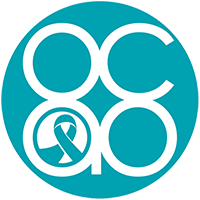Ovarian cancer causes more deaths than any other cancer of the female reproductive system, with 1 in 70 women developing the disease over their lifetime. While the median age for ovarian cancer is approximately 63, several other factors can increase the risk, and it is important to remember that women of all ages are at risk. Having one or more of the following factors does not necessarily mean a woman will develop ovarian cancer, but all women should be aware of their individual risk and with the help of a doctor can determine the best approach to reducing risk and staying healthy.
Increasing age:
Women become more at risk as they get older, especially once they reach their 60s. The risk continues through their late 70s.
Family History
Women are more at risk if they have:
- An inherited genetic mutation in the breast cancer gene 1 (BRCA1) or the breast cancer gene 2 (BRCA2)
- An inherited syndrome called hereditary colorectal cancer (HNPCC/Lynch Syndrome)
- Family history of breast cancer before the age of 50
- Family history of ovarian cancer (risk is increased if it is a mother, daughter or sister; this risk in turn is further elevated if ovarian cancer developed prior to menopause)
- Family history of uterine or colon cancer before the age of 50
- Family history of Fallopian Tube, Peritoneal or Endometrial Cancers
Medical History
Women are more at risk if they have a personal history of breast, endometrial or colon cancer.
Menstrual History
Women are more at risk if they started menstruating before the age of 12.
Infertility
Women are more at risk if they:
- Have had no children
- Are unable to have children
- Had their first child after the age 30
- If fertility drugs, specifically Clomid, are used for more than a year without a resulting pregnancy, risk is increased
Menopause and Hormone Replacement Therapy
Women can be more at risk if they:
- Experienced menopause after the age of 50
- Have used a combination of estrogen and progestrin hormone replacements for menopause symptoms for five years or more
- Risk increases if used for ten or more years
Eastern European Women and Women of Ashkenazi Jewish Descent
Women of this descent are more likely to carry the mutated BRCA1 and BRCA2 genes.
Obesity
The risk of death by ovarian cancer is increased by up to 50 percent in the heaviest of women, according to an American Cancer Society study.
Male Hormones
The use of male hormones, known as androgens, and the specific use of the drug Danazol (used to treat endometriosis), has been linked to an increased risk of ovarian cancer.
Information gathered from the American Cancer Society, the National Ovarian Cancer Alliance and the Women’s Cancer Network.
Risk Reduction and Prevention
Women of all age are at risk. Although there is no way to prevent ovarian cancer, there are ways to reduce one’s risk.
Oral Contraceptives
Using birth control pills can significantly decrease the risk of ovarian cancer, especially those who have used them for five years or more. The use of birth control pills can reduce risk up to 50 percent.
Gynecologic Surgery
Both tubal litigation (having your “tubes tied”) and hysterectomy can reduce risk, however these surgeries should only be considered if they are necessary and not specifically to reduce the risk of ovarian cancer. In addition, those who are high at risk because of a strong family history can consider a bilateral oophorectomy, in which both ovaries and fallopian tubes are removed.
Genetic Counseling and Genetic Testing
This helps women to find out if they carry one of the gene mutations putting them at increased risk for ovarian cancer. Detecting the genetic mutation can help women to begin dialogue with their doctors about further prevention and can reducing their risk to the best of their abilities.
Sources:

